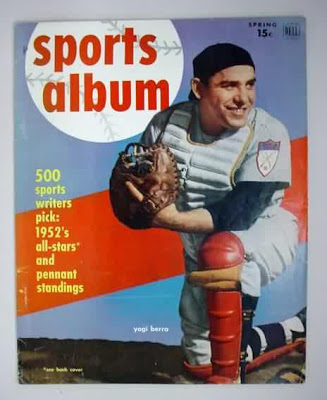
YOGI Taking A Serious Look At
Tampa Bay Online
Tampa Bay Online
updated 12:50 a.m. ET, Fri., March. 21, 2008
By BOB D'ANGELO
Fans of Yogi Berra should thank Carlo DeVito for making his biography necessary.
Berra's fractured language sometimes overshadowed his Hall of Fame baseball career. In "Yogi: The Life and Times of an American Original," (Triumph, $25.95), DeVito strips away the cartoon character and digs deeper into the real person. The result is a well-balanced, serious look at one of the game's all-time greats.
Berra did not get to Cooperstown because of his earthy (but generally insightful) sayings. He wielded a dangerous bat during his career, hitting 358 homers, and was one of the game's best clutch hitters. He played in 14 World Series and won 10 titles. He also managed the Yankees (1964) and Mets (1973) to the World Series before losing in seven games each time.
"He is as much a part of New York as dirty-water dogs and cheesecake," DeVito writes.
With plenty of detail and anecdotes, DeVito traces Berra's burning desire to succeed in baseball from his childhood in St. Louis. He reveals a canny businessman who was not afraid of tough negotiations in contract talks with the Yankees' front office.
While his teammates threw their money into frivolous schemes, Berra became wealthy through his involvement with Yoo-hoo chocolate drinks. He enjoyed the boom in bowling and got out before that market crashed.

Berra also was savvy enough to play off his reputation as a malapropism master, much to the dismay of the AFLAC duck.
"On the one hand, they media created a character that didn't exist; on the other, he cashed in on it," DeVito writes.
DeVito looks at Berra's signature phrases: "It ain't over till it's over," "When you get to a fork in the road, take it" and "I want to thank everyone for making this night necessary," sifts fact from fiction and puts them in their proper context.
DeVito's research is thorough and his prose, while not glittering, is workmanlike. It reflects his subject perfectly.
